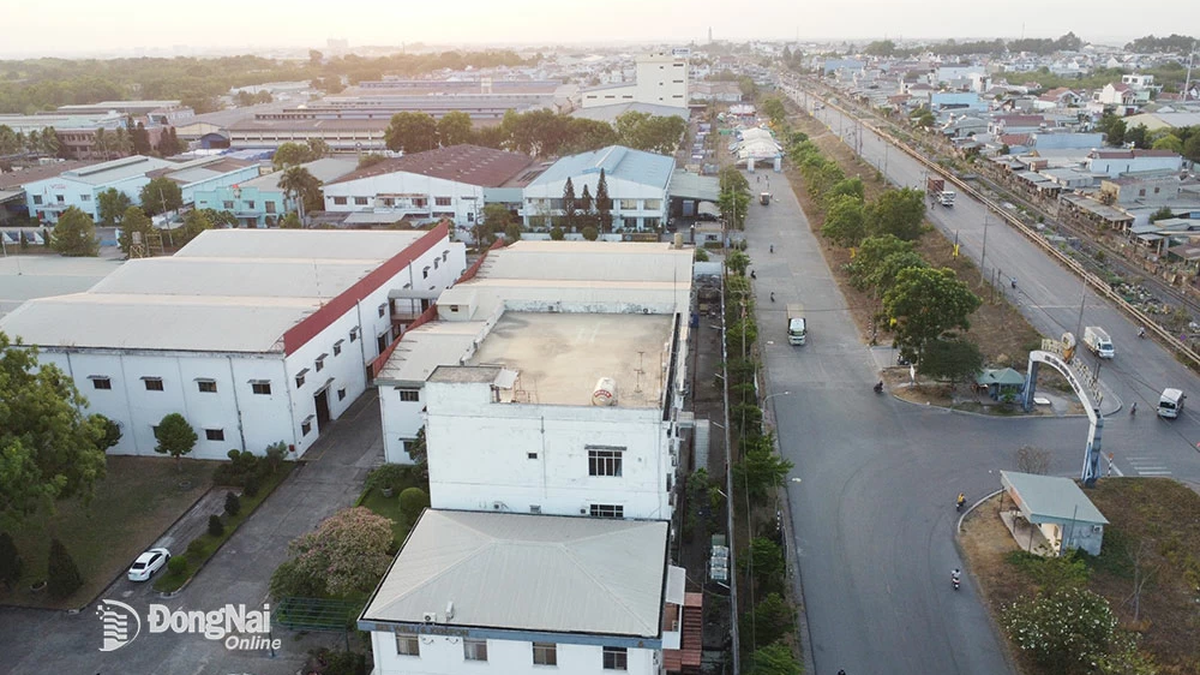On March 31, the Digital Content Creation Alliance - DCCA (under the Vietnam Digital Communications Association) and the Department of International Cooperation ( Ministry of Information and Communications ) jointly organized a conference on exploiting international markets and tax policies for the digital content creation industry.
This is an open forum to connect content creators, tax experts, tax authorities, and media agencies to have an overview and analyze tax-related aspects in the field of digital content creation and making money on free platforms (abbreviated as MMO - Make Money Online) to ensure that MMOers have a clear and transparent understanding of taxes and ensure compliance with Vietnamese law and the Double Taxation Agreement that Vietnam has signed with 72 countries and territories.
According to Mr. Nguyen Thien Nghia, Deputy Director of the Information Technology and Communications Industry Department (Ministry of Information and Communications), although there is a lot of room, digital content only accounts for a small part of the revenue of the global information technology and communications industry (about 148 billion USD in 2022). This encourages creators to develop further, in order to make the most of Vietnam's advantage of production costs being dozens of times lower than the world average.
In addition to upgrading technical infrastructure and technology, management agencies need to have preferential tax policies, both personal income tax and corporate income tax, to maintain Vietnam's competitive advantage as well as retain experts.
Currently, the digital content business is very diverse, including: Content production and monetization on free platforms: YouTube, Facebook, TikTok and many other cross-border platforms; Business on online music platforms: Spotify, Apple Music, Amazon Music and about 52 other digital music platforms; Selling images, paintings, design drawings, 2D - 3D images - videos, online education... on global online platforms; Online games released on Apple Store and CH Play as well as digital platforms of other countries.
On YouTube alone, data in 2022 shows that the number of Vietnamese people making money from social media platforms is up to 20,000, bringing in foreign currency revenue equivalent to VND 1,500 billion. Vietnam currently has nearly 500 YouTube channels with gold buttons (over 1 million subscribers) and 8 channels with diamond buttons (over 10 million subscribers).
YouTube is one of the content creation platforms with the largest number of MMO participants in the world today. With the rapid growth of digital content services, in 2022 alone, more than 51 million new YouTube channels were created, equivalent to a growth rate of 36%.
Of these, 306,000 YouTube channels have more than 100,000 subscribers, 29,000 channels have more than 1 million subscribers, and 700 channels have more than 10 million subscribers. This huge number of accounts brings YouTube more than 1 billion hours of video content viewed every day.
Meanwhile, Mr. Trieu Minh Long, Director of the Department of International Cooperation (Ministry of Information and Communications) shared that Vietnam's tax policy is very attractive, both to domestic enterprises and foreign investors.
Currently, domestic competition is very "fierce", so organizations and individuals operating in the field of digital content can shift their business to foreign countries or cross-border platforms. Thanks to the advantage of being able to respond quickly and sensitively, domestic enterprises are able to bring more "Make in Vietnam" content products to the international market.
Analyzing a specific case, DCCA representative, Mr. Nguyen Viet Tiep, senior tax accounting expert, commented that businesses and individuals operating on YouTube in Vietnam are having to pay double taxes on revenue from views in the United States.
Specifically, content creators outside the United States, if registered in this country, will have to withhold 30% income tax on views coming from the United States. Views from other countries will not be taxed.
If they are not registered for tax purposes in the United States, content creators from countries outside the United States will have 24% income tax withheld on their total global views.
When the money flows into Vietnam, individual creators must pay an additional 7%, including 5% VAT and 2% personal income tax. Organizations and businesses doing business on YouTube must pay a tax of 30%, including 10% VAT and 20% corporate income tax.
Since 1992, Vietnam has signed double taxation avoidance agreements with 72 countries and territories, of which 60 documents are currently in effect. With the United States, Vietnam signed the agreement on July 7, 2015, but because the United States has not yet ratified it, the agreement has not yet taken effect.
Agreeing with the above view, Associate Professor Dr. Ly Phuong Duyen, lecturer at the Academy of Finance, said that some domestic digital content creation businesses and individuals still face difficulties in declaring and accounting for costs, leading to not enjoying tax incentives.
Synthesizing opinions at the conference, DCCA recommended that the General Department of Taxation consider applying the principle of avoiding double taxation to income sources from countries that have signed agreements with Vietnam, and at the same time recommended that the Government promote the early implementation of the Double Taxation Avoidance Agreement between Vietnam and the United States.
For digital content produced and sold for foreign markets and foreign viewers, the VAT rate is 0% (0% VAT for both individuals and businesses). For income from views in Vietnam: individuals apply 2% VAT, 1% personal income tax; for businesses, the VAT rate is 10% (according to Circular 40/2021/TT-BTC, dated June 1, 2021)
With the mission of connecting businesses and individuals in the digital content, information technology and communications industry, DCCA hopes that content creators will enjoy policy incentives similar to those in the software and high-tech sectors. Specifically, products in this segment are being exempted from corporate income tax for 4 years, reduced by 50% for 9 years, and many other policies./.
Source link




















































![[Maritime News] More than 80% of global container shipping capacity is in the hands of MSC and major shipping alliances](https://vphoto.vietnam.vn/thumb/402x226/vietnam/resource/IMAGE/2025/7/16/6b4d586c984b4cbf8c5680352b9eaeb0)













































Comment (0)